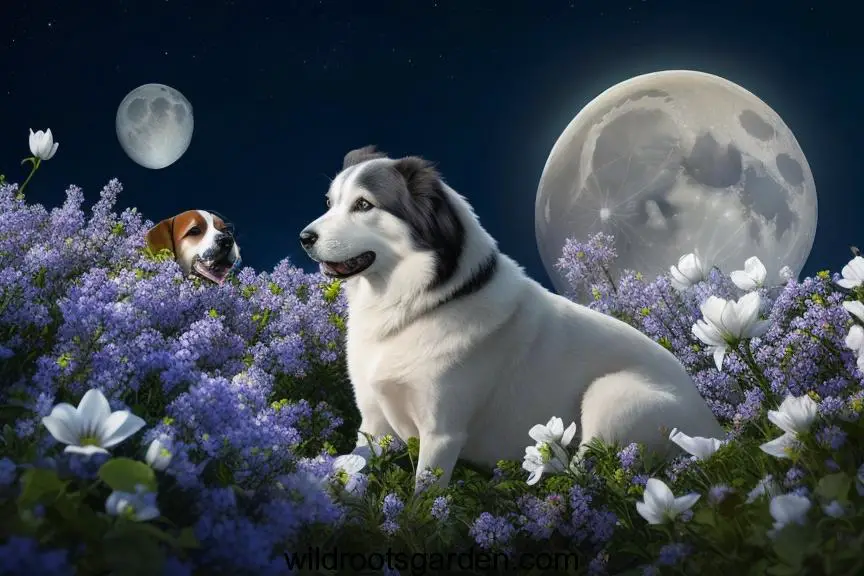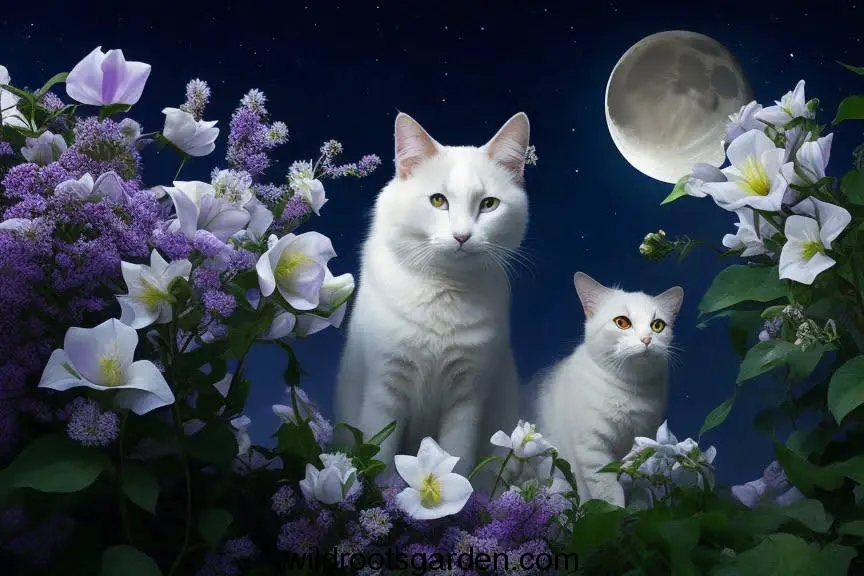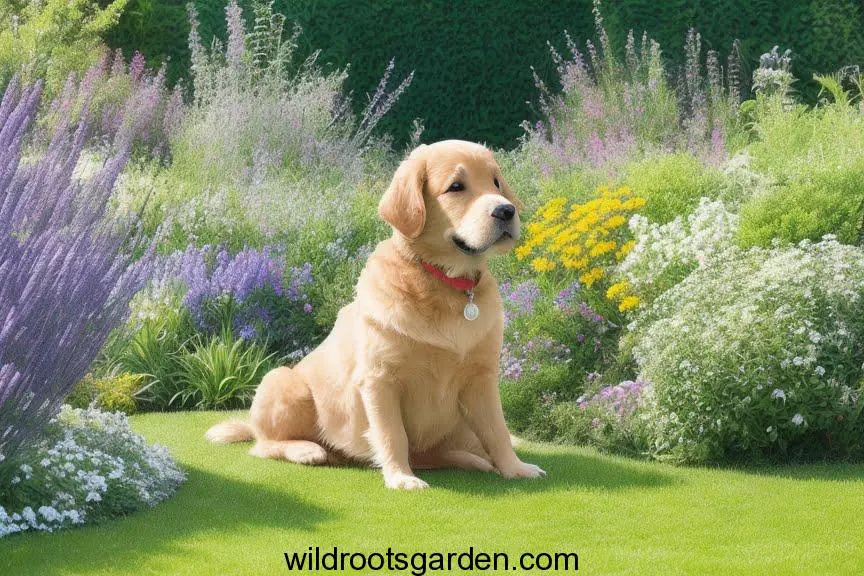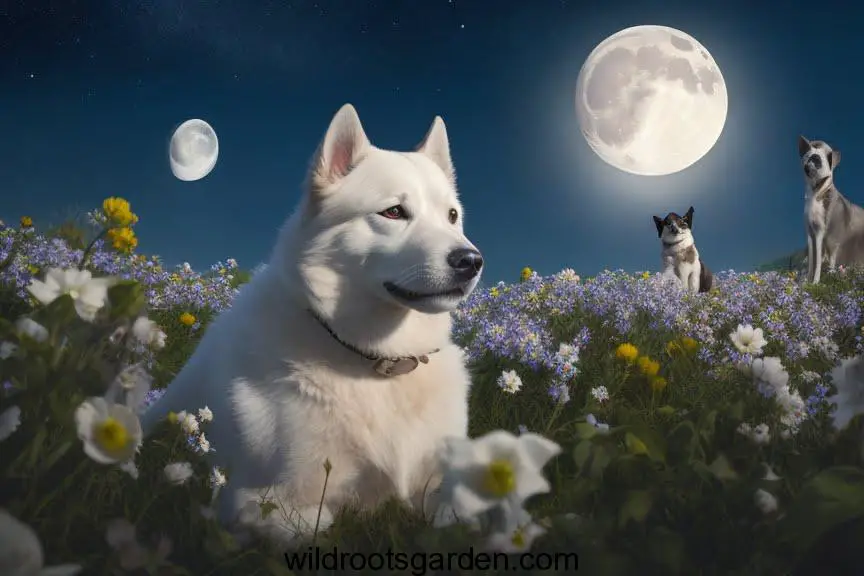Are Moon Flowers Poisonous to Dogs? Many pet owners enjoy gardening and creating beautiful outdoor spaces to relax and unwind. However, as a responsible pet owner, it’s crucial to be aware of the potential hazards that certain plants can pose to our beloved furry friends. One such plant is the Moon Flower (Ipomoea alba), which has gained popularity for its enchanting appearance and fragrance. In this article, we will explore whether Moon Flowers are poisonous to dogs, the signs of toxicity, and how to keep our canine companions safe while enjoying our gardens.
Moon Flowers, scientifically known as Ipomoea alba, are stunning night-blooming plants that belong to the family Convolvulaceae. Native to the Americas, these flowers earned their name due to their habit of blooming in the evening and remaining open until the following morning. The Moon Flower’s large, white, trumpet-shaped blooms emit a delightful fragrance that attracts various pollinators, including moths.
Moon Flowers Toxicity in Dogs
How Are Moon Flowers Poisonous to Dogs?

While Moon Flowers add an ethereal charm to our gardens, they harbor certain compounds that can be harmful to dogs if ingested. The entire plant contains toxic substances such as glycosides, alkaloids, and tropane, which can have adverse effects on a dog’s health when consumed in even small quantities.
Symptoms of Moon Flower Poisoning in Dogs
It’s essential to recognize the signs of Moon Flower toxicity in dogs to seek prompt veterinary assistance. The symptoms may vary depending on the amount ingested and the dog’s size and sensitivity. Common signs of poisoning include:
- Vomiting
- Diarrhea
- Excessive drooling
- Loss of appetite
- Lethargy and weakness
- Dilated pupils
- Rapid breathing
- Increased heart rate
- Seizures
Actions to Take If a Dog Ingests Moon Flowers
If you suspect that your dog has ingested Moon Flowers or is showing any signs of poisoning, it’s crucial to act quickly. Contact your veterinarian immediately and provide them with detailed information about the plant ingested and the symptoms observed. In some cases, inducing vomiting may be necessary, but this should be done under professional guidance.
Moon Flowers and Other Pets

While this article focuses on dogs, it’s worth noting that Moon Flowers can also be toxic to other pets, including cats and small animals. Pet owners with multi-pet households should take extra precautions to protect all their furry companions from the potential dangers of Moon Flowers.
Preventing Moon Flower Poisoning in Dogs
Identifying Moon Flowers
To safeguard our dogs from Moon Flower poisoning, we must be able to recognize these plants. Moon Flowers have heart-shaped leaves and produce large, trumpet-like flowers that are predominantly white. The blooms usually open in the evening and close during the day.
Safe Gardening Practices
If you have Moon Flowers in your garden and also share your living space with dogs, consider adopting safe gardening practices:
- 1. Fence off the Garden: Restrict your dog’s access to areas where Moon Flowers grow.
- 2. Regular Garden Inspection: Routinely inspect your garden to ensure there are no fallen or pruned plant parts that your dog might ingest.
- 3. Train Your Dog: Teach your dog basic commands like “leave it” to prevent them from nibbling on unknown plants.
- 4. Use Planters: Consider planting Moon Flowers in hanging planters or elevated containers, out of your dog’s reach.
- 5. Supervised Outdoor Time: Keep a close eye on your dog when they are outdoors, especially in gardens or yards containing potentially toxic plants.
Safe Alternatives for Dog-Friendly Gardens

As pet owners, we can create beautiful and safe garden spaces for our furry friends by choosing pet-friendly plants as alternatives to Moon Flowers:
Pet-Friendly Plants
- 1. Sunflowers: These vibrant beauties are safe for dogs and can add a touch of sunshine to your garden.
- 2. Snapdragons: With their unique blooms, snapdragons are non-toxic and a great choice for dog-friendly gardens.
- 3. Roses: Stick to rose varieties that don’t have thorns, as they can be a safer option for your pets.
- 4. Marigolds: These colorful flowers can add charm to your garden while being safe for dogs.
Non-Toxic Plant Options
- 1. Boston Fern: A lush and non-toxic fern that can bring a fresh vibe to your garden.
- 2. Spider Plant: Known for its air-purifying properties, the spider plant is safe for both dogs and cats.
- 3. Calendula: Also known as pot marigold, calendula is non-toxic and offers beautiful, edible blooms.
- 4. Phlox: These lovely, fragrant flowers are a safe option for pet owners.
As much as we love our gardens and the allure of Moon Flowers, our pets’ safety should always be a top priority. Moon Flowers are indeed poisonous to dogs and can lead to severe health issues if ingested. By understanding the risks, identifying the plants, and implementing safe gardening practices, we can create a beautiful and pet-friendly outdoor space that allows both our gardens and our dogs to flourish.
FAQs
Can Moon Flower poisoning in dogs be fatal?
In severe cases or if left untreated, Moon Flower poisoning can indeed be fatal. If you suspect your dog has ingested Moon Flowers, seek immediate veterinary attention.
Are Moon Flowers toxic to cats as well?
Yes, Moon Flowers are toxic to cats, along with other small animals. It’s essential to keep all pets away from these plants.
Are all parts of the Moon Flower toxic?
Yes, all parts of the Moon Flower, including leaves, stems, flowers, and seeds, contain toxic substances.
Can Moon Flowers cause skin irritation in dogs?
Yes, direct contact with Moon Flowers may cause skin irritation in some dogs. Keep your pets away from these plants to avoid any potential issues.
What are some common symptoms of Moon Flower poisoning in dogs?
Common symptoms include vomiting, diarrhea, drooling, weakness, dilated pupils, and increased heart rate. If you notice any of these signs, seek veterinary help immediately.

